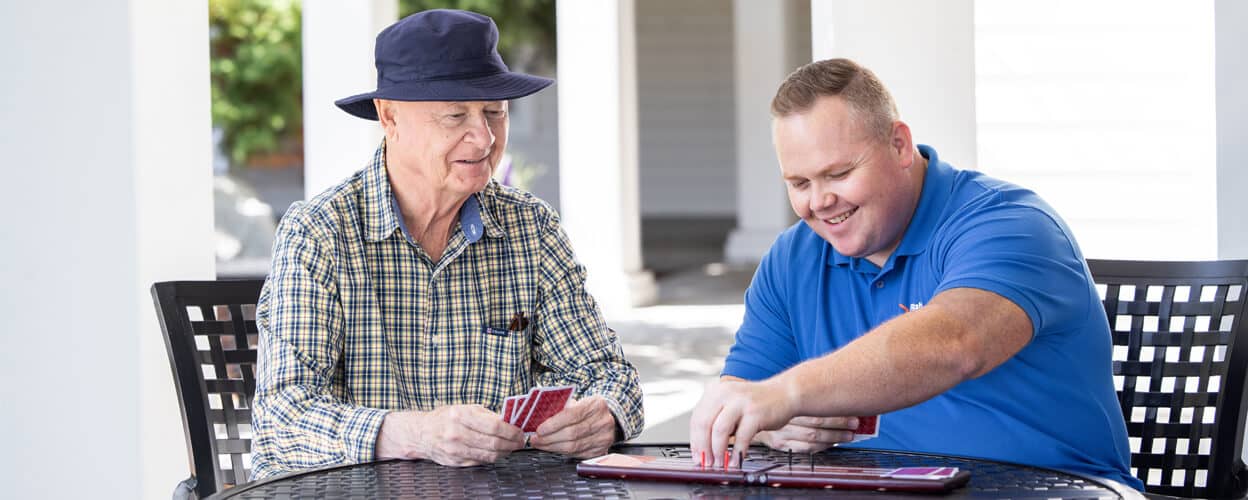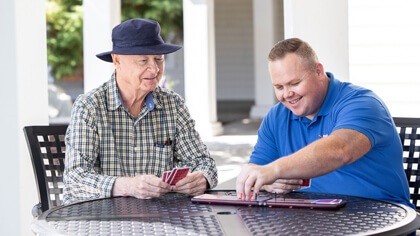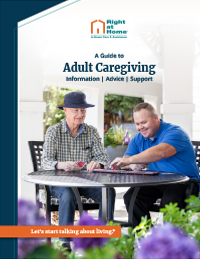

Adult Caregiving Guide
You’re happy to help your aging loved one, but it isn’t always easy. And knowing when you may need some extra help can also be a challenge. Don’t ignore the signs that your loved one’s needs are changing.
- Withdrawal from social interactions, disinterest
- Unusual behavior, like increased agitation, speaking loudly or little talking at all
- Poor hygiene or nutrition
- Signs of forgetfulness, such as piles of unopened mail, dirty or scorched cookware, unwashed laundry
- Mismanagement of finances—not paying bills or making unusual purchases
Follow the Adult Caregiving Guide's simple steps to ensure that your aging parent, spouse or friend is getting the right care that he or she needs.
1
Determine whether your loved one needs assistance
2
Find out what care might be right for you and your loved one
3
Get help if you need it
70%
of adult caregivers have to rely on help from family members, friends or neighbors.
Relevant Services
Are you an adult caregiver? You’re not alone.

Download the Adult Caregiving Guide
For more information, download the full guide.



